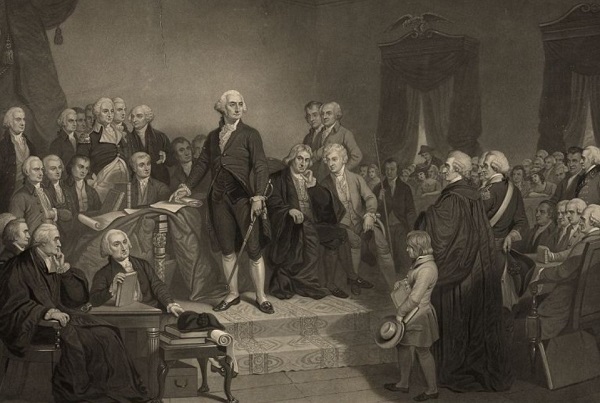Opinion
Grounded -The PM’s plane is transformed into a metaphor

|
|
I stopped by the Conservative Convention on Thursday night, just briefly. The mood (which I ascertained by asking several Conservative acquaintances “What’s the mood?”) was cautiously optimistic. The Conservatives I met — a random sample, skewed older because I haven’t met a new generation of Conservative activists — sounded pleased with Pierre Poilievre’s summer. But they also figure they’re getting a second look because voters have given the Liberals a hundred looks and they always see the same thing.
Later, word came from India that Justin Trudeau’s airplane had malfunctioned, stranding him, one hopes only briefly. It’s always a drag when a politician’s vehicle turns into a metaphor so obvious it begs to go right into the headline. As for the cause of the breakdown, I’m no mechanic, but I’m gonna bet $20 on “The gods decided to smite Trudeau for hubris.” Here’s what the PM tweeted or xeeted before things started falling off his ride home:
One can imagine the other world leaders’ glee whenever this guy shows up. “Oh, it’s Justin Trudeau, here to push for greater ambition!” Shall we peer into their briefing binders? Let’s look at Canada’s performance on every single issue Trudeau mentions, in order.
Paul Wells is a reader-supported publication. To receive new posts and support my work, consider becoming a free or paid subscriber.
On climate change, Canada ranks 58th of 63 jurisdictions in the global Climate Change Performance Index. The country page for Canada uses the words “very low” three times in the first two sentences.
On gender equality, the World Economic Forum (!) ranks Canada 30th behind a bunch of other G-20 members.
On global health, this article in Britain’s BMJ journal calls Canada “a high income country that frames itself as a global health leader yet became one of the most prominent hoarders of the limited global covid-19 vaccine supply.”
On inclusive growth, the United Nations Conference on Trade and Development has a composite indicator called the Inclusive Growth Index. Canada’s value is 64.1, just behind the United States (!) and Australia, further behind most of Europe, stomped by Norway at 76.9%.
On support for Ukraine, the German Kiel Institute think tank ranks Canadafifth in the world, and third as a share of GDP, for financial support; and 8th in the world, or 21st as a share of GDP, for military support.
Almost all of these results are easy enough to understand. A small number are quite honourable. But none reads to me as any kind of license to wander around, administering lessons to other countries. I just finished reading John Williams’ luminous 1965 novel about university life, Stoner. A minor character in the book mocks the lectures and his fellow students, and eventually stands unmasked as a poser who hasn’t done even the basic reading in his discipline. I found the character strangely familiar. You’d think that after nearly a decade in power, after the fiascos of the UN Security Council bid, the first India trip, the collegiate attempt to impress a schoolgirl with fake trees, the prime minister would have figured out that fewer and fewer people, at home or abroad, are persuaded by his talk.
But this is part of the Liberals’ problem, isn’t it. They still think their moves work. They keep announcing stuff — Digital adoption program! Growth fund! Investment tax credits! Indo-Pacific strategy! Special rapporteur! — and telling themselves Canadians would miss this stuff if it went away. Whereas it’s closer to the truth to say we can’t miss it because its effect was imperceptible when it showed up.
In a moment I’ve mentioned before because it fascinates me, the Liberals called their play a year ago, as soon as they knew they’d be facing Pierre Poilievre. “We are going to see two competing visions,” Randy Boissonault said in reply to Poilievre’s first Question Period question as the Conservative leader. The events of the parliamentary year would spontaneously construct a massive contrast ad. It was the oldest play in the book, first articulated by Pierre Trudeau’s staff 50 years ago: Don’t compare me to the almighty, compare me to the alternative. It doesn’t work as well if people decide they prefer the alternative. It really doesn’t work if the team running the play think it means, “We’re the almighty.”
Share
There may yet be years — two, anyway — before we get to vote in a general election. Obviously much can change. I’ve made it clear, just about every time I’ve written about specific Poilievre policies, that I’ve seen no reason to be optimistic that a change of government would guarantee any improvement in public administration. But what we’ve seen elsewhere — most spectacularly in provincial elections in Quebec and Ontario in 2018 — is that sometimes voters stop caring about that question. They have a simpler question: After a decade in power, does the government in place even notice large, obvious things?
I see the Liberal caucus will be in London, ON this week. Here’s a chance for them to practice noticing large, obvious things. MPs would do well to walk around the city’s downtown core after dark, east of Richmond St., between Dundas and York. If they travel in small groups they’ll probably be safe.
While they witness what a Canadian city looks like in 2023, they might remind themselves that their unofficial 2015 election slogan was “Better Is Always Possible.” And ask themselves how much trouble they’ll be in if voters still believe it.
Lately when I write about the Liberals I upset my Liberal subscribers and when I write about Conservatives I upset my Conservative subscribers. I know it can feel like shtick, but it reflects my conviction that the partisan joust, and the genuine feelings that underpin it, are easier to address than the wicked problems of a chaotic time. And therefore way too tempting to an entire generation of political leadership.
For the Liberals, the challenge has been obvious since 2019: Does Justin Trudeau learn? In 2015 he ran as a disruptor, a guy who had noticed large, obvious things — interest rates were low! Small deficits were more manageable than they had been in years ! — and was willing to be cheeky in ignoring the other parties’ orthodoxies. Stephen Harper and Tom Mulcair were reduced to sputtering outrage that the new kid was making so many cheeky promises on fighter procurement (whoops), electoral reform (never mind), admitting Syrian refugees, legalizing cannabis, and more.
Since about 2017, inevitably, the Trudeau government has undergone a transition that’s common when disruptors become incumbents. He is increasingly forced to defend the state of things, rather than announcing he’s come to change it. He’s changed positions from forward to goal. All his opponents need to do is notice the big, obvious things he seems unable to see. The biggest: It’s become punishingly difficult for too many Canadians to put a roof over their head.
The old Trudeau would have done big, surprising things to show he could see such a thing. The Trudeau who ejected every senator from the Liberal caucus and broke a decade’s taboo against deficit spending would shut down the failed Canada Infrastructure Bank this week and put the savings into a national crisis housing fund. Or, I don’t know, some damned thing.
But of course, the surprising Trudeau of 2015 hadn’t been prime minister yet, had he? This hints at a question a few Liberals are starting to ask themselves. Does he have any juice left in him for more than pieties? He might still have some fight in him, but does he still have the job in him?
He’s already been in the job for longer than Pearson and Diefenbaker were. His indispensable right hand has been chief of staff longer than anyone who ever held the job. They have, for years, already been noticeably eager to administer lessons to others. Would they view a Liberal election defeat as their failure — or ours?
Would a prime minister who views a G-20 summit as a learning opportunity for every country except Canada view an election defeat as anything but further proof that Canada never really deserved him anyway?
This article is from Paul Wells substack.
For the full experience, click to subscribe to Paul Wells.
Click here to support the work of Paul Wells by subscribing to substack
Economy
Prime minister’s misleading capital gains video misses the point
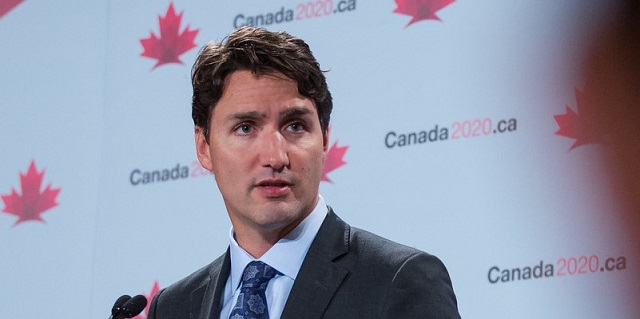
From the Fraser Institute
By Jake Fuss and Alex Whalen
According to a 2021 study published by the Fraser Institute, 38.4 per cent of those who paid capital gains taxes in Canada earned less than $100,000 per year, and 18.3 per cent earned less than $50,000. Yet in his video, Prime Minister Trudeau claims that his capital gains tax hike will affect only the richest “0.13 per cent of Canadians”
This week, Prime Minister Trudeau released a video about his government’s decision to increase capital gains taxes. Unfortunately, he made several misleading claims while failing to acknowledge the harmful effects this tax increase will have on a broad swath of Canadians.
Right now, individuals and businesses who sell capital assets pay taxes on 50 per cent of the gain (based on their full marginal rate). Beginning on June 25, however, the Trudeau government will increase that share to 66.7 per cent for capital gains above $250,000. People with gains above that amount will again pay their full marginal rate, but now on two-thirds of the gain.
In the video, which you can view online, the prime minister claims that this tax increase will affect only the “very richest” people in Canada and will generate significant new revenue—$20 billion, according to him—to pay for social programs. But economic research and data on capital gains taxes reveal a different picture.
For starters, it simply isn’t true that capital gains taxes only affect the wealthy. Many Canadians who incur capital gains taxes, such as small business owners, may only do so once in their lifetimes.
For example, a plumber who makes $90,000 annually may choose to sell his business for $500,000 at retirement. In that year, the plumber’s income is exaggerated because it includes the capital gain rather than only his normal income. In fact, according to a 2021 study published by the Fraser Institute, 38.4 per cent of those who paid capital gains taxes in Canada earned less than $100,000 per year, and 18.3 per cent earned less than $50,000. Yet in his video, Prime Minister Trudeau claims that his capital gains tax hike will affect only the richest “0.13 per cent of Canadians” with an “average income of $1.4 million a year.”
But this is a misleading statement. Why? Because it creates a distorted view of who will pay these capital gains taxes. Many Canadians with modest annual incomes own businesses, second homes or stocks and could end up paying these higher taxes following a onetime sale where the appreciation of their asset equals at least $250,000.
Moreover, economic research finds that capital taxes remain among the most economically damaging forms of taxation precisely because they reduce the incentive to innovate and invest. By increasing them the government will deter investment in Canada and chase away capital at a time when we badly need it. Business investment, which is crucial to boost living standards and incomes for Canadians, is collapsing in Canada. This tax hike will make a bad economic situation worse.
Finally, as noted, in the video the prime minister claims that this tax increase will generate “almost $20 billion in new revenue.” But investors do not incur capital gains taxes until they sell an asset and realize a gain. A higher capital gains tax rate gives them an incentive to hold onto their investments, perhaps until the rate is reduced after a change in government. According to economists, this “lock-in” effect can stifle economic activity. The Trudeau government likely bases its “$20 billion” number on an assumption that investors will sell their assets sooner rather than later—perhaps before June 25, to take advantage of the old inclusion rate before it disappears (although because the government has not revealed exactly how the new rate will apply that seems less likely). Of course, if revenue from the tax hike does turn out to be less than anticipated, the government will incur larger budget deficits than planned and plunge us further into debt.
Contrary to Prime Minister Trudeau’s claims, raising capital gains taxes will not improve fairness. It’s bad for investment, the economy and the living standards of Canadians.
Authors:
COVID-19
Tucker Carlson and NFL star Aaron Rodgers discuss Bill Gates, COVID-19, US Deep State
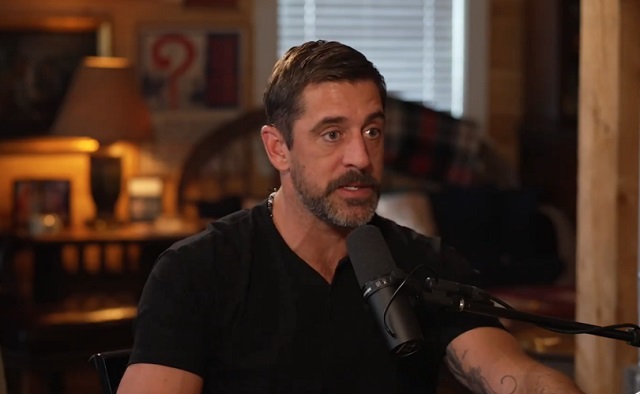
From LifeSiteNews
By Stephen Kokx
The star quarterback argued that Dr. Anthony Fauci was financially incentivized to suppress COVID treatments like ivermectin, adding that Americans should have compassion on those who were convinced by the ‘full-court propaganda.’
NFL quarterback Aaron Rodgers has not been shy about his opposition to the COVID shot in recent years. During many public appearances on television, he has strongly denounced mandates, lockdowns, and government and media officials who pushed the jab. Now, he’s striking a somewhat different tone.
“How do we call these people forward, in love and acceptance… to step into the truth?” Rodgers asked Tucker Carlson in reference to Americans who bought into the “full-court propaganda” and received the shot.
Aaron Rodgers pic.twitter.com/sYBCtOVNU2
— Tucker Carlson (@TuckerCarlson) May 14, 2024
“They went through all the mass-formation psychosis that we all did… and are now going, ‘Oh s***. Maybe that wasn’t the best. Maybe they lied to us. Maybe this wasn’t safe.’”
Rodgers spoke with Carlson earlier this month in a timely, two-hour long interview on his The Tucker Carlson Show. As previously reported by LifeSiteNews, they touched on an array of subjects related to how global elites control the world, including blackmail and pedophilia.
There are “a lot of really interesting secret societies, not just the Skull and Bones at Yale, which has produced all those presidents and Freemasonry at its highest level,” Rodgers said. “There is a sexual component, I think, to a lot of that.”
Rodgers won Super Bowl XLV with the Green Bay Packers in 2010. A sure-fire Hall of Famer, he was one of the highest profile professional athletes to push back against the shot at the time. During an appearance on ESPN’s Pat McAfee Show in January, he courageously argued that Dr. Anthony Fauci had a financial incentive to vilify alternative treatments like ivermectin, hydroxychloroquine, zinc, vitamin D, and vitamin C. He made similar points with Carlson.
“If we’d called this ‘gene therapy,’… maybe we thought it was about 5 to 10 percent of people that might take this. We call it a ‘vaccine’ then that brings in all the potential [of] being canceled as an anti-vaxxer, because that’s what they did to me and you as well,” he said.
READ: Bill Gates predicts mRNA ‘vaccine factories’ worldwide and $2 vaccines for every disease
Rodgers, 40, has been a vocal supporter of medical freedom activist turned pro-abortion presidential contender Robert F. Kennedy Jr. He told Carlson that Kennedy asked him if he would consider being his running mate. He ultimately said no but he hopes that if he was elected “Bobby” would make the hard decisions to take on the Deep State and the “alphabet” agencies like the FBI and CIA.
“There’s a top line in a lot of those organizations that are actually at their core anti-American and are not doing things that [are] in the best interest of our people,” Rodgers said. “[Trump] had four years to do it and didn’t drain the swamp, and whether he just got scared because of what he learned when he was in there, I think it’s very plausible.”
Rodgers and Carlson also discussed COVID propagandist Bill Gates.
“I think there’s some people that want depopulation… Bill Gates… if you look at his track record and what he’s done around the world,” Rodgers said, referring to Gates’ vaccine activism in Africa.
“I think he’s strongly pro-death,” Carlson replied.
“I think he’s not the only one. I think there are a lot of other people. I don’t understand what that motivation is… but I think those are some of the evils that we’re up against,” Rodgers commented.
Rodgers revealed that he has done a seven-day fast to improve his health and encourages others to try it as well. He also explained that he doesn’t eat a lot of sugar because cancer cells thrive off of it. He then pointed out that there has been a proliferation of ailments developed by children in recent decades, seemingly hinting that he believes that is a result of the massive increase in vaccines they receive.
Although raised in a Christian home, Rodgers told Carlson it is possible religion is a tool to “control” people. At the same time, he said there is a “demonic” element to UFOs and that, regarding the COVID shot, he thinks “evil kind of overstepped a little bit too far. And now that the tides are turning.”
“There’s a battle that’s going on between the seen and the unseen world, between good and evil, between the powers that we can see and the powers that we can’t see,” he stated.
At one point in their conversation, Carlson asked Rodgers, “do you know anyone who didn’t get the vax who’s upset he didn’t get the vax? Does anyone regret that decision?”
“No,” Rodgers replied.
“Right. Not one person, ever,” said Carlson.
-

 Economy2 days ago
Economy2 days agoFeds spend $3 million to fly 182 politicians and bureaucrats to climate conference
-
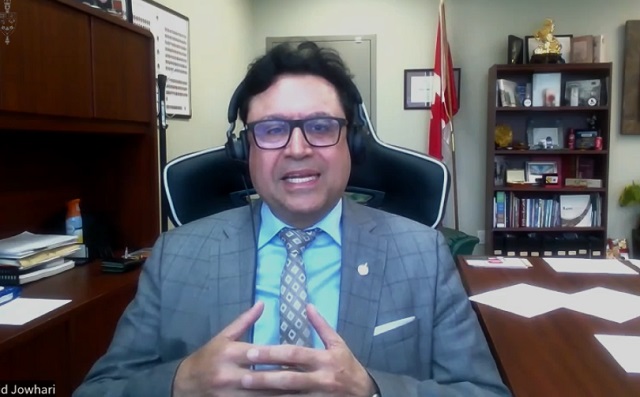
 Addictions1 day ago
Addictions1 day agoLiberals shut down motion to disclose pharma payments for Trudeau’s ‘safe supply’ drug program
-

 espionage1 day ago
espionage1 day agoThe Scientists Who Came in From the Cold: Canada’s National Microbiology Laboratory Scandal, Part I
-

 Energy1 day ago
Energy1 day agoTech giants’ self-made AI energy crisis
-

 Economy10 hours ago
Economy10 hours agoPrime minister’s misleading capital gains video misses the point
-

 Economy2 days ago
Economy2 days agoCanadians experiencing second-longest and third steepest decline in living standards in last 40 years
-
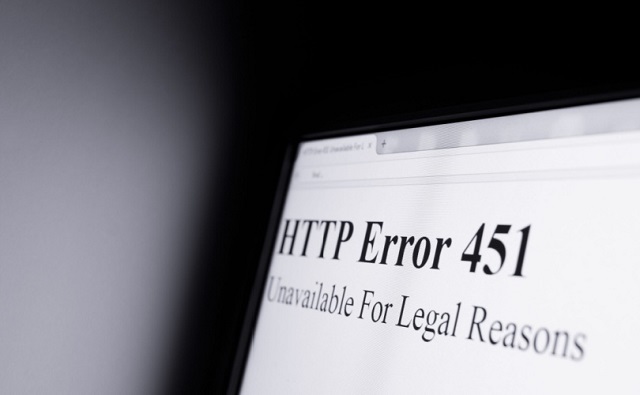
 National1 day ago
National1 day agoTrudeau’s internet censorship Bill C-11 will not be implemented until late 2025
-

 Frontier Centre for Public Policy22 hours ago
Frontier Centre for Public Policy22 hours agoThe PM as Leaf’s coach







